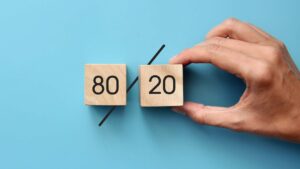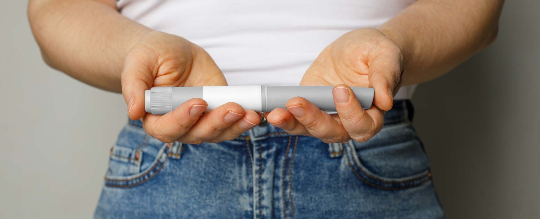Calorie Calculator Results
The Energy Requirement Calculator tells you how much energy you need during the day. Your daily energy requirement is largely determined by your activity level. It is also somewhat influenced by gender, height, age, and weight.
For example, a woman weighing 60 kg, age 30, height 160 cm, and with a normal daily activity level – needs about 2000 kcal of energy daily. The same figures with the highest level of daily activity increase calorie needs by about. 20%.
Subscribe to the newsletter and get tips on weight management!
Calorie Calculator and Activity Level – how to Estimate the Amount of Exercise?
| Mostly rest | you practically do nothing during the day |
| Low activity | light work, weekly everyday activity or fitness exercise 1-2 times a week. |
| Moderate activity | medium-intensity work, daily everyday activity or fitness exercise 2-3 times a week |
| High activity | physically demanding work, plenty of daily everyday activity or fitness exercise 4-5 times a week |
| Very high activity | extremely active job, very high everyday activity and/or athlete/fitness enthusiast in a physically demanding sport |
The Energy Requirement Calculator is an Indicative Tool
There are several different energy requirement calculators nowadays, but currently, the Mifflin-St Jeor equation is believed to give the most accurate results.
The equation goes as follows:
Energy requirement calculator formula: 10 x weight (kg) + 6.25 x height (cm) – 5 x age (y) + s (calories per day, men +5, women -161)
For a long time, the
Harris-Benedict equation
was used for daily energy requirements. The equation was published in 1919 and was considered the most accurate daily energy requirement equation for over 70 years. It was then replaced by the Mifflin-St Jeor equation. You can still find many other equations for calculating energy requirements, but they are likely to be replaced by the same equation.
All of our bodies are different, and in addition to the energy requirement calculator, many different factors need to be considered in energy needs. Daily consumption can vary by tens of percent up or down depending on the person, and people rarely can accurately calculate their daily activity level.
The amount of energy alone may not serve your needs in weight management or health. All daily food could be consumed, for example, only with pastries, which is not comparable to a balanced diet.
Consult a Painoklinikka Professional if Needed
The Energy Requirement Calculator tells you how much energy you need daily, but if all other factors are not in order, you may not achieve your weight goals with calorie counting alone. Sleep, food quality, regular meal rhythms, hormones, psychological factors, and many other things affect your health comprehensively.
The calculator gives you indicative information about how much energy your body consumes during a day. It may be that you calculate food accurately and your daily energy requirement is higher compared to that, but for some reason, you still don’t reach your weight goal.
In that case, it’s worth contacting Painoklinikka professionals. We help you with weight and health-related issues and get you on the right track. Together with you, we will make an assessment of your needs and agree on the right kind of treatment program that you need.
Frequently Asked Questions about the Energy Requirement Calculator
Daily energy requirements certainly raise several questions. We have collected frequently asked questions and answers related to the topic here.

















